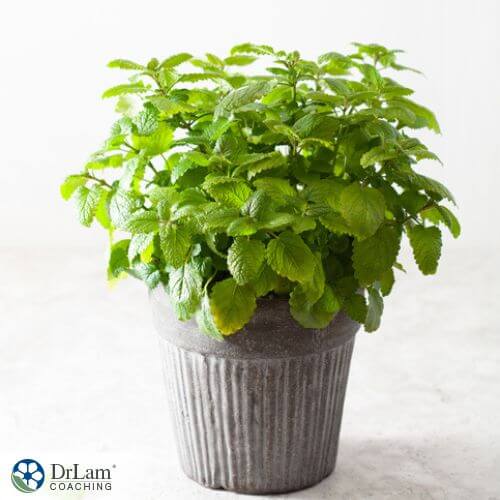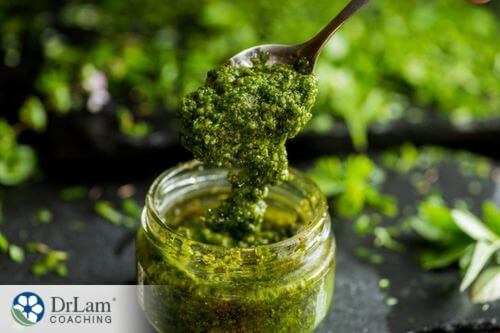 Lemon balm is an herb belonging to the mint family. Officially called Melissa officinalis, lemon balm uses have been known as far back as the Middle Ages. Historically, the herb has been used as a means of reducing pain and indigestion, reducing anxiety, improving appetite and sleep, and even helping deal with the common cold.
Lemon balm is an herb belonging to the mint family. Officially called Melissa officinalis, lemon balm uses have been known as far back as the Middle Ages. Historically, the herb has been used as a means of reducing pain and indigestion, reducing anxiety, improving appetite and sleep, and even helping deal with the common cold.
An easy-to-grow native of Europe, lemon balm is now grown all over the world. Lemon balm uses include aromatherapy, cosmetics, and furniture polish. However, this article will look at lemon balm uses for your health.
Lemon balm uses are the result of several helpful properties. These include antioxidant, anti-inflammatory, antiviral, anti-histamine, antidepressant, antibacterial, analgesic (pain relieving), and antifungal properties. The herb is often combined with other calming herbs to promote healing on several levels. You can use lemon balm both topically and internally. The following includes the most common lemon balm uses.
A study from 2004 indicates that lemon balm may help reduce stress and uplift your mood. It may also induce calmness and alertness, and help nervousness and excitability, both symptoms of anxiety.
In 2014, a small study showed that lemon balm uses include a positive effect on the cognitive function of participants. After taking lemon balm and given tasks involving concentration, memory, and mathematics, the participants performed much better than those in the control group who were not given the herb.
A 2011 National Library of Medicine article suggests that lemon balm uses include its ability to address insomnia. It ascribes this ability to its calming effect and ability to reduce feelings of stress and subsequent anxiety.
Stress results in your Hypothalamic-Pituitary-Adrenal (HPA) axis activating your NEM. This results in an increased cortisol production accompanied by a heightened state of alertness, increased heart rate, and a cascade of changes to your body functions and organ systems. You may also experience a reduced desire to sleep during this period.
Prolonged stress could, however, result in these changes being prolonged over an extended period and lead to insomnia. In other words, you may find sleeping difficult. This inability to sleep adds stress to an already taxed system. You may end up with a cyclical effect if you do not address the issue. Lemon balm may help.
Lemon balm uses include its ability to help relieve indigestion and nausea. Two studies, published in 2005 and 2010 respectively, found that lemon balm may lessen the symptoms and intensity of the abdominal pain and discomfort associated with indigestion while helping to address nausea as well. Other digestive issues that may improve when using lemon balm include bloating and colic.
The antiviral properties of the herb may be why addressing cold sores is one of the main lemon balm uses. When applied topically, lemon balm may help speed up the healing process and result in less pain. Literature also suggests that using lemon balm may help increase the interval between outbreaks.
 Literature suggests that using lemon balm may help relieve PMS and menstrual cramping. A study on 100 girls at high school found that those who took lemon balm showed a reduction in symptoms over three months.
Literature suggests that using lemon balm may help relieve PMS and menstrual cramping. A study on 100 girls at high school found that those who took lemon balm showed a reduction in symptoms over three months.
One of the more unexpected lemon balm uses is in addressing tension headaches. Its effectiveness appears to result from its ability to help you relax and reduce tension resulting from stress.
Because of its ability to relieve pain, combined with its anti-inflammatory properties, lemon balm may help to target inflammation and thus reduce pain even further. You should still see a dentist for dental pain though.
Many health issues result from oxidative stress. Because of its strong antioxidant properties, lemon balm uses may include addressing cardiovascular disease, helping to slow neurodegenerative disorders like Alzheimer’s disease or Parkinson’s, and managing symptoms associated with diabetes. However, these uses need more research and are only part of an overall care plan.
Your Neuroaffect Circuit forms part of your NEM stress response. It consists of your brain, autonomic nervous system, and microbiome. Together, these three see to the continuation of your mental health. However, when a disruption occurs in any of these three components, as we find when your body experiences stress, the NEM stress response will result in the release of higher cortisol by the adrenal glands. This impacts not only your Neuroaffect Circuit but all the circuits governed by the NEM. This reaction starts with the HPA axis. Prolonged higher cortisol output may ultimately result in adrenal fatigue.
One of the things your body needs to recover from stress is good quality sleep. However, stress cause changes in your sleep cycle. You may, for example, not be able to fall asleep or frequently wake up during the night. Ultimately, sleep deprivation becomes another stressor on your already taxed body.
This happens because a rise in cortisol levels is accompanied by a rise in epinephrine levels. Together, these two hormones could cause sleep onset insomnia or sleep maintenance insomnia. Furthermore, sleep is affected by other hormones as well.
Dehydroepiandrosterone (DHEA) is a precursor hormone made in your adrenals. During stressful times, DHEA is converted into cortisol which could result in lower DHEA levels overall. This may stimulate the release of another hormone, norepinephrine. Norepinephrine inhibits your ability to fall asleep.
Lastly, you may see a decline in melatonin production. This is because higher cortisol production results in lower melatonin production. Melatonin initiates sleep.
Your biological clock, or the circadian rhythm, may also experience a disruption. Your biological clock makes use of neurotransmitters and hormones to help regulate your sleep-wake cycle. If something disturbs hormone or neurotransmitter function, it may impact your sleep-wake cycle. High cortisol levels and lower melatonin levels also affect the function of your sleep-wake cycle. This can cause sleep issues as well as contribute to adrenal fatigue.
You can grow your own lemon balm at home and use it as tea. However, you can also use the oil, buy it in the form of loose tea or teabags from a grocery store, use it in powder form, or purchase it as a supplement.
 When using the oil, note that it is best to dilute it with a carrier oil because the strength of the oil may cause skin reactions. Good choices include jojoba oil, grapeseed oil, or even olive oil. Mix a few drops of lemon balm oil to a teaspoon of carrier oil.
When using the oil, note that it is best to dilute it with a carrier oil because the strength of the oil may cause skin reactions. Good choices include jojoba oil, grapeseed oil, or even olive oil. Mix a few drops of lemon balm oil to a teaspoon of carrier oil.
Recommended dosages follow:
While many lemon balm uses could help a variety of health issues, there are always possible side effects and risks. It is because of these that you should always first talk to a healthcare provider before starting to use any supplements or essential oils.
Lemon balm oil may have the following side effects depending on whether you use it in capsule form, as a tincture, as a tea, or as an oil:
Lemon balm may also interact with the following types of medication:
It is also not recommended that you:
If you experience side effects, you may find it better to ingest lemon balm after a meal. You may also reduce your side effect risk if you take less than 2 mg per day. Furthermore, you should not take lemon balm for extended periods. It is best to take a break of a week after using it for three weeks continuously and never longer than four months in total.
Because lemon balm is from the mint family, it is relatively easy to grow in your garden or even as a potted plant on the porch, balcony, or on a warm windowsill. Incorporating it into your diet to promote better sleep is relatively easy.
You can enjoy this drink either warm or cold.
Ingredients A:
Ingredients B:
Method:
Your iced tea will keep well for a few days if stored in the refrigerator, although the intensity of flavor will increase.
 This pesto lasts for up to two weeks if stored in the refrigerator in an airtight container.
This pesto lasts for up to two weeks if stored in the refrigerator in an airtight container.
Ingredients:
Method:
This infused vinegar makes a great addition to any salad dressing. You can store it in a dark cupboard for up to two weeks.
Ingredients:
Method:
You can add this butter to any dish calling for the use of butter. It is a great addition to meat, fish, vegetables, garlic bread, and pasta dishes. It keeps for up to a month if stored in the refrigerator in an airtight container.
Ingredients:
Method:
We cannot deny the many beneficial lemon balm uses for mental health, sleep issues, cold sores, and many other health needs. But if using you are using it in large amounts, it is best to do so with the guidance of your healthcare provider. These four recipes are a great way to get started adding lemon balm to your diet.
If you would like to know more about the many beneficial lemon balm uses and the use of other medicinal herbs, the team at Dr. Lam Coaching can help. We offer a free** no-obligation phone consultation at +1 (626) 571-1234 where we will privately discuss any issues you may have. You can also send us a question through our Ask The Doctor system by clicking here.
Yes, the various lemon balm uses do benefit those suffering from adrenal fatigue. It has a calming effect and may help address many of the health issues experienced by those with the condition. However, please only use lemon balm with the advice of a healthcare provider.
